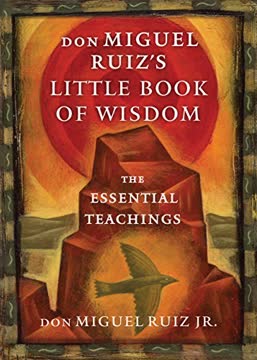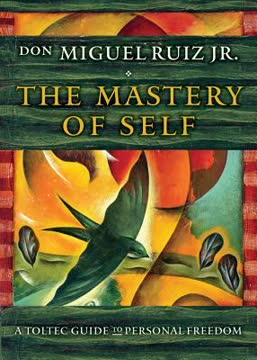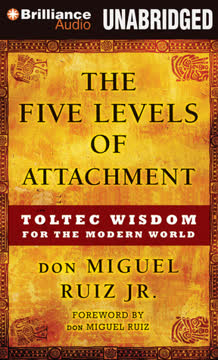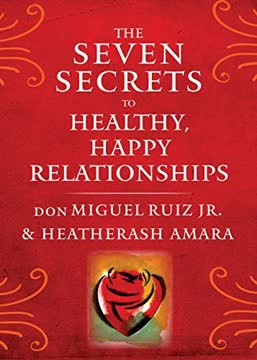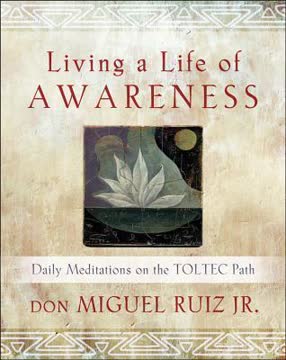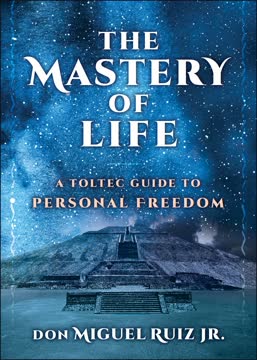Key Takeaways
1. We are all artists creating our own stories
"We are all artists, each one of us. I'm talking about the totality of humanity around this beautiful Planet Earth."
We are the authors of our lives. Every human being is an artist, constantly creating and shaping their personal reality through thoughts, beliefs, and actions. This creative power is not limited to a select few but is inherent in all of us.
Our stories shape our world. The narrative we construct about ourselves and our experiences becomes the lens through which we perceive and interact with the world. This story is unique to each individual, forming a personal "dream" that defines our reality.
Responsibility and freedom. Recognizing our role as artists of our own lives empowers us to take responsibility for our creations. We have the power to change our story at any time, freeing ourselves from limiting beliefs and opening up new possibilities for growth and happiness.
2. The power of perception shapes our reality
"Whatever we perceive is simply light coming from all the different directions to a place that seems like it is right behind my eyes and just between my ears, a place that represents only one point of view."
Reality is subjective. Our perception of the world is not an objective truth but a subjective interpretation filtered through our senses, beliefs, and experiences. What we see as reality is actually a mental construct.
The mind as a mirror. Like a mirror reflecting light, our mind creates images based on the information it receives. However, these reflections are not exact representations of external reality but are distorted by our knowledge, judgments, and past experiences.
- Our brain processes sensory input
- We interpret this input based on our beliefs and past experiences
- This interpretation becomes our personal reality
- Different people can perceive the same event in vastly different ways
Awareness of perception. Understanding the subjective nature of our perception allows us to question our assumptions and beliefs. This awareness can lead to greater empathy, as we recognize that others may perceive the world differently, and can also empower us to consciously shape our reality by changing our perceptions.
3. Breaking free from domestication and societal conditioning
"We have learned to love in the wrong way. This is the method of domestication. We learned to love with conditions."
Recognizing our conditioning. From birth, we are subjected to a process of domestication by our families, society, and culture. This conditioning shapes our beliefs, behaviors, and self-image, often in ways that limit our true potential and happiness.
The impact of conditional love. One of the most damaging aspects of domestication is learning to love conditionally. We are taught that we are only worthy of love if we meet certain expectations or behave in specific ways. This leads to self-judgment, fear of rejection, and an inability to love ourselves and others unconditionally.
Steps to break free:
- Become aware of your conditioned beliefs and behaviors
- Question the validity of these beliefs
- Practice self-acceptance and unconditional self-love
- Challenge societal expectations that don't align with your authentic self
- Cultivate awareness to make conscious choices rather than automatic reactions
4. Mastering the Four Agreements
"The Toltec agreements are tools that an artist can use to create a new life."
Transformative power. The Four Agreements, as taught by don Miguel Ruiz, offer a powerful framework for personal freedom and happiness. These agreements act as tools to break free from limiting beliefs and create a life of authenticity and joy.
The Four Agreements:
- Be Impeccable With Your Word: Speak with integrity and say only what you mean
- Don't Take Anything Personally: Nothing others do is because of you
- Don't Make Assumptions: Find the courage to ask questions and express what you really want
- Always Do Your Best: Your best will change from moment to moment, but always give your best effort
Practice and mastery. Implementing these agreements requires consistent practice and awareness. As you integrate them into your life, you'll find greater personal freedom, improved relationships, and a more positive outlook on life.
5. Embracing unconditional love and self-acceptance
"You are good enough—you are perfect—just the way you are."
Self-love as a foundation. Unconditional self-acceptance is the cornerstone of personal happiness and fulfilling relationships. It involves recognizing your inherent worth, independent of external achievements or others' opinions.
Breaking the cycle of conditional love. Many of us have learned to love ourselves and others conditionally, based on meeting certain expectations. This leads to suffering and unfulfilling relationships. By practicing unconditional self-love, we can break this cycle and extend that same unconditional love to others.
Steps to cultivate self-acceptance:
- Recognize and challenge negative self-talk
- Practice self-compassion and forgiveness
- Celebrate your unique qualities and strengths
- Separate your worth from your achievements or mistakes
- Surround yourself with supportive, positive people
6. The illusion of knowledge and the search for truth
"Whatever we think we know is only an agreement, and it is based on our language. It's just words."
Knowledge as a construct. What we consider knowledge is often a set of agreements based on language and societal consensus. This "knowledge" can limit our perception of reality and prevent us from experiencing truth directly.
The limitations of language. Words and concepts are symbols that attempt to describe reality but are not reality itself. True understanding often lies beyond what can be expressed in language.
Seeking truth beyond knowledge:
- Question your beliefs and assumptions
- Practice direct experience rather than relying solely on concepts
- Cultivate awareness of the present moment
- Embrace uncertainty and the unknown
- Recognize that truth is often paradoxical and beyond intellectual understanding
7. Awareness as the key to personal transformation
"Awareness will keep the 'I am' in charge."
The power of awareness. Cultivating awareness is fundamental to personal growth and transformation. It allows us to observe our thoughts, emotions, and behaviors without judgment, creating space for conscious choice.
Breaking automatic patterns. Many of our reactions and behaviors are automatic, based on past conditioning. Awareness enables us to interrupt these patterns and make choices aligned with our true selves.
Practicing awareness:
- Develop a regular meditation or mindfulness practice
- Pay attention to your thoughts and emotions throughout the day
- Notice your habitual reactions in different situations
- Practice being present in the moment
- Observe without judgment or the need to change anything
8. Overcoming fear and embracing life
"Don't be afraid to live, don't be afraid to be yourself, don't be afraid of anything—enjoy everything while it is here, just as you are here."
Understanding fear. Fear is a natural emotion that can protect us from real dangers. However, most of our fears are based on imagined future scenarios or past experiences, limiting our ability to fully engage with life.
Courage and action. Overcoming fear doesn't mean never feeling afraid. It means having the courage to take action despite fear, recognizing that growth and fulfillment often lie on the other side of our comfort zone.
Strategies for embracing life:
- Identify and challenge irrational fears
- Take small steps outside your comfort zone regularly
- Practice mindfulness to stay grounded in the present moment
- Reframe failures as learning opportunities
- Cultivate gratitude for life's experiences, both positive and challenging
9. The interconnectedness of all beings
"Humanity is made of more than seven billion living beings, and together we are one."
Unity in diversity. Despite our apparent differences, all human beings are interconnected parts of a greater whole. This understanding can foster empathy, compassion, and a sense of shared responsibility for our world.
Beyond human interconnection. The concept of interconnectedness extends beyond humanity to all of nature and the universe itself. We are part of a vast, living system in which every action has far-reaching effects.
Implications of interconnectedness:
- Treating others with kindness and respect
- Recognizing the impact of our actions on the wider world
- Cultivating empathy and compassion
- Seeking win-win solutions in conflicts
- Taking responsibility for our role in global issues
10. Death as our greatest teacher
"Death is our greatest teacher; she gives us everything we have and she will take back everything."
Embracing impermanence. Acknowledging the reality of death can transform our perspective on life. It teaches us to value the present moment and appreciate what we have while we have it.
Living fully. The awareness of our mortality can motivate us to live more authentically and purposefully. It encourages us to prioritize what truly matters and let go of trivial concerns.
Lessons from death:
- Appreciate the preciousness of each moment
- Focus on what truly matters in life
- Let go of grudges and practice forgiveness
- Face your fears and take positive risks
- Live with integrity and authenticity
Last updated:
FAQ
What is "don Miguel Ruiz's Little Book of Wisdom" about?
- Legacy of Toltec Wisdom: The book, compiled by Miguel Ruiz Jr., distills the essential teachings of don Miguel Ruiz, rooted in the ancient Toltec tradition, focusing on personal freedom, self-awareness, and unconditional love.
- Practical Spiritual Guide: It offers practical advice and philosophical insights for transforming one’s life by changing personal beliefs, agreements, and self-perceptions.
- Personal and Universal: The book blends personal anecdotes, Toltec stories, and universal truths to help readers understand the nature of reality, suffering, and happiness.
- Accessible Wisdom: It is designed as a collection of short passages and stories, making it easy to read, reflect upon, and apply to daily life.
Why should I read "don Miguel Ruiz's Little Book of Wisdom" by Miguel Ruiz Jr.?
- Transformative Self-Help: The book provides actionable wisdom for overcoming self-judgment, suffering, and conditional love, leading to greater happiness and inner peace.
- Toltec Teachings Simplified: It breaks down complex Toltec concepts into accessible language and practical steps, making ancient wisdom relevant for modern readers.
- Personal Growth Focus: Readers seeking to change their personal narrative, improve relationships, and cultivate self-love will find clear guidance and inspiration.
- Legacy and Authenticity: The book is a heartfelt tribute to don Miguel Ruiz’s teachings, offering both the author’s personal experiences and the core messages that have helped millions worldwide.
What are the key takeaways from "don Miguel Ruiz's Little Book of Wisdom"?
- You Create Your Story: Each person is the artist of their own life, creating a personal reality through beliefs, agreements, and the use of language.
- Freedom Through Awareness: True freedom comes from becoming aware of and questioning the stories, judgments, and domestication imposed by society and oneself.
- Unconditional Self-Love: Loving yourself without conditions is the foundation for happiness and the ability to love others authentically.
- The Four Agreements: The core Toltec agreements—be impeccable with your word, don’t take anything personally, don’t make assumptions, and always do your best—are practical tools for transformation.
How does "don Miguel Ruiz's Little Book of Wisdom" define and use the concept of "Agreements"?
- Personal Contracts: Agreements are personal contracts or beliefs we make about reality and ourselves, often unconsciously, that shape our experiences and behaviors.
- Source of Suffering or Joy: Some agreements lead to happiness and freedom, while others cause drama, suffering, and self-limitation.
- Toltec Four Agreements: The book highlights the Four Agreements as tools to break old, harmful agreements and create a new, more fulfilling life.
- Power to Change: By becoming aware of and changing our agreements, we reclaim personal power and reshape our reality.
What is the Toltec tradition, and how does it influence "don Miguel Ruiz's Little Book of Wisdom"?
- Ancient Wisdom: The Toltecs were an ancient group in Mexico who viewed every human as an artist of their own life, focusing on perception and personal transformation.
- Family Lineage: The Ruiz family has passed down Toltec wisdom through generations, blending it with modern psychology and common sense.
- Way of the Artist: The book encourages readers to see themselves as artists, consciously creating their lives through choices, words, and beliefs.
- Universal Application: While rooted in Toltec tradition, the teachings are presented as universal, practical, and accessible to anyone, regardless of background.
What are the Four Agreements, and why are they central to "don Miguel Ruiz's Little Book of Wisdom"?
- Be Impeccable with Your Word: Use language truthfully and constructively, as words shape your reality and self-image.
- Don’t Take Anything Personally: Recognize that others’ actions and words are about them, not you, freeing you from unnecessary suffering.
- Don’t Make Assumptions: Avoid projecting your own stories onto others; instead, seek clarity and understanding.
- Always Do Your Best: Your best changes from moment to moment; doing your best leads to self-acceptance and growth.
- Foundation for Change: These agreements are practical tools for breaking old patterns and creating a new, more authentic life.
How does "don Miguel Ruiz's Little Book of Wisdom" explain the concepts of "Domestication" and "Conditional Love"?
- Domestication Defined: Domestication is the process by which society, family, and culture teach us how to behave, what to believe, and how to love, often through reward and punishment.
- Conditional Love: We learn to love ourselves and others with conditions, leading to self-rejection, judgment, and suffering.
- Breaking Free: The book emphasizes awareness as the key to breaking free from domestication and practicing unconditional self-love.
- Impact on Relationships: Understanding these concepts helps readers stop trying to control others and instead focus on self-respect and authentic love.
What is the role of "Knowledge" and "The Voice of Knowledge" in "don Miguel Ruiz's Little Book of Wisdom"?
- Knowledge as a Double-Edged Sword: Knowledge consists of beliefs, language, and stories we accumulate, which can either serve us or limit us.
- Voice of Knowledge: The internal narrator or voice in our head often perpetuates old agreements, judgments, and lies, leading to suffering.
- Skepticism and Awareness: The book advises being skeptical of both external and internal voices, listening but not automatically believing, and testing what is true for oneself.
- Knowledge as an Ally: With awareness, knowledge becomes a tool we control, rather than something that controls us.
How does "don Miguel Ruiz's Little Book of Wisdom" address suffering and the path to happiness?
- Addiction to Suffering: The book asserts that humans are often addicted to suffering, practicing it until it becomes habitual.
- Breaking the Habit: The antidote is to practice seeing everything as beautiful, appreciating life, and focusing on what brings joy.
- Happiness is a Choice: Happiness comes from loving oneself unconditionally and living authentically, not from external validation or circumstances.
- Present Moment Focus: By letting go of the past and not worrying about the future, one can find happiness in the present.
What practical advice does "don Miguel Ruiz's Little Book of Wisdom" offer for changing your personal story?
- Awareness First: Recognize that your life is a story you have created, and you have the power to change it.
- Change the Main Character: The only way to change your story is by changing your beliefs about yourself—the main character.
- Forgiveness and Letting Go: Forgive yourself and others, let go of past wounds, and focus on self-love to heal and transform your story.
- Action and Practice: Take consistent action on new agreements and perspectives; practice makes the master.
What are the most important Toltec concepts explained in "don Miguel Ruiz's Little Book of Wisdom"?
- Personal Dream and Dream of the Planet: Each person has a unique perspective (personal dream), while society shares a collective dream (Dream of the Planet).
- Mitote: The chaos of conflicting voices and thoughts in the mind, which can be quieted through awareness and skepticism.
- Authentic Self: The true self beyond roles, images, and knowledge—connected to life, love, and the present moment.
- Attachment and Detachment: Recognizing when you are attached to beliefs, roles, or outcomes, and learning to detach and return to your authentic self.
What are the best quotes from "don Miguel Ruiz's Little Book of Wisdom" and what do they mean?
- "You are good enough—you are perfect—just the way you are."
This quote emphasizes unconditional self-acceptance as the foundation for happiness and transformation. - "The only story that you can change is your own."
It reminds readers that true change starts within, not by trying to control others. - "The word is the main tool of the artist."
This highlights the power of language in shaping reality and the importance of using words impeccably. - "The truth will set you free."
The book teaches that freedom comes from seeing through the lies and stories we tell ourselves, and living in alignment with truth and love. - "We are here to be alive, to enjoy life, to explore life, to be ourselves, and it is beautiful."
This encapsulates the book’s core message: embrace life fully, authentically, and joyfully.
Review Summary
Readers generally praise don Miguel Ruiz's Little Book of Wisdom for its simple yet profound messages. Many find the book's wisdom applicable to daily life and appreciate its potential for personal transformation. Some reviewers note that the content is repetitive and could have been condensed. The book's teachings on self-love, letting go of judgments, and living authentically resonate with many readers. Several mention its similarity to "The Four Agreements" and other works by Ruiz. While some criticize certain aspects, most find value in the book's overall message and practical advice.
Similar Books
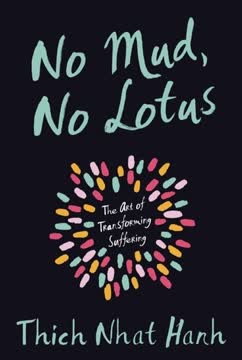
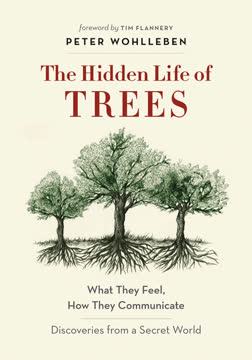
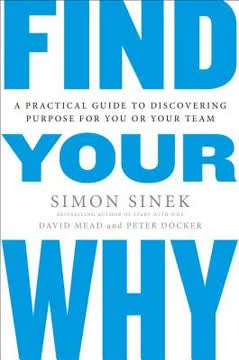
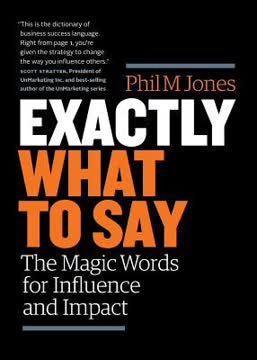
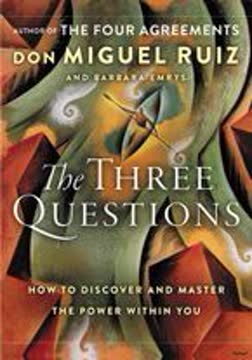
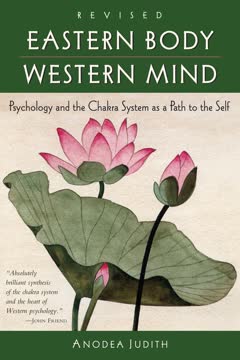
Download PDF
Download EPUB
.epub digital book format is ideal for reading ebooks on phones, tablets, and e-readers.
